
Literary Mavens Flock to Eichlers in Orange
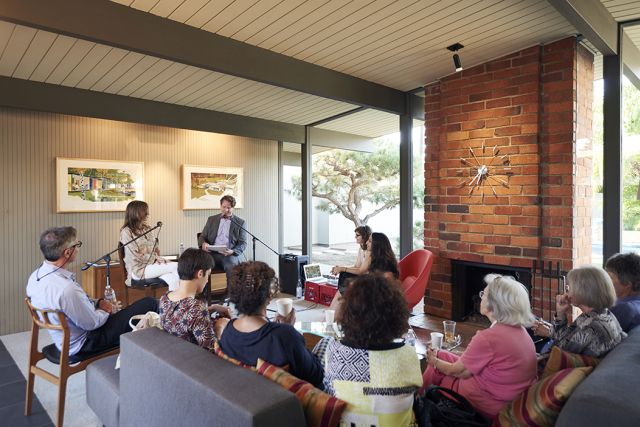 |
|
|
Anyone who’s ever spent more than an hour or two in the city of Orange knows it’s a special place, a college town with a lively downtown centered upon a splashing, illuminated fountain. But is it ever likely to become 'the Literary Arts Capital of Southern California?'
It will if Kevin Staniec has his way, and one of his strategies is to make use of Eichler homes.
Staniec is executive director of 1888 Center, named for the year the city incorporated, a three-year-old nonprofit with several intersecting goals. “It’s definitely about the history of the city of Orange and its heritage, utilizing literary arts as the anchor for the history and the heritage,” says Staniec, a writer, publisher, and arts advocate.
“Our goal,” he adds, “is outreach, to make reading, writing, history, and culture very important in the area.”
One reason he believes the city of Orange can become a literary arts capitol is, it’s always had a literary tradition – specifically, the oral tradition of communal storytelling.
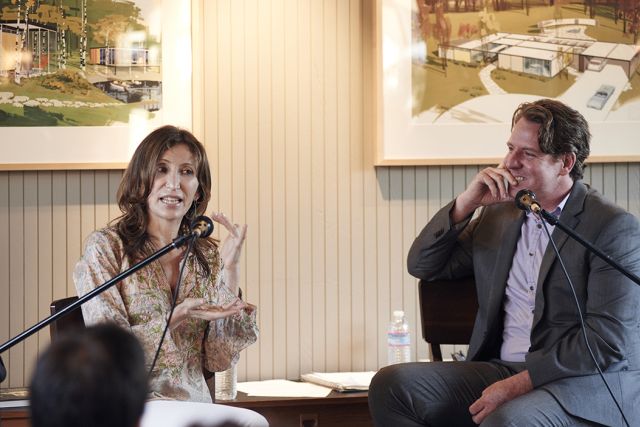 |
|
|
One of 1888’s programs is the 'Eichler Sessions,' which brings writers into Eichler homes and invites readers and would-be readers to join them. The quarterly events are fundraisers for 1888, cost $40, and include the chance to learn about each of the Eichler homes from the owner.
The next event, the second in the series, is Saturday, November 7, featuring crime novelist Denise Hamilton, who also edited two anthologies, ‘Los Angeles Noir’ and ‘Los Angeles Noir 2: The Classics.’
“She’s perfect because of the books she writes and the era,” Staniec says. “It’s the era of the Eichler buildings, and it captures that moment.”
To attend, subscribe to 1888’s digital newsletter 'The Paper Trail,' which will announce when tickets go on sale. They sell quickly, Staniec says.
The first of the sessions featured Francesca Lia Block, a prolific Los Angeles author of fiction, nonfiction, and poetry.
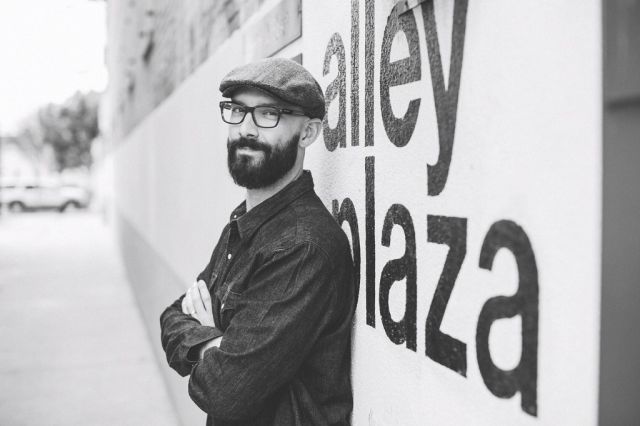 |
|
|
If you miss the actual Session, you can catch the podcast, an edited version of the talk. Staniec says more than 3,000 have already downloaded Francesca Lia Block’s talk.
A different home is chosen every time, courtesy of Jeffrey Crussell, who lives in and sells Eichlers in the area and is a longtime supporter of the arts. Orange has three Eichler neighborhoods.
“My role is to provide the house,” says Crussell, who is an architect and artist himself. “I am trying to find uniquely adapted Eichlers or original Eichlers.”
“It’s a wonderful program,” Crussell says. “It gives good insight into the writer. How did you get started? Did you always want to write? The kinds of questions that would interest young people.”
Kevin explains how 1888 decided to run programs in Eichlers, which were built from 1960 to 1963.
Rather than having “a presentation that is someone on stage talk to an audience, something like a TED talk,” he wondered, “how can we erase those lines and barriers to have something comfortable, inviting, where you can interrupt and ask questions? Something that’s more of a conversation."
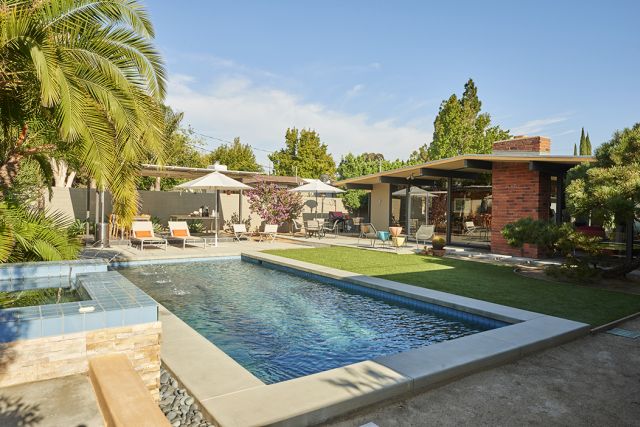 |
|
|
“I kept thinking about living rooms, and houses, and homes. I thought about doing a salon-style program and thought, what if we actually are in a house that’s historic and had a nice modern design to it? Everything kept pointing to Eichler.”
Crussell says, “Kevin called me because he knew I lived in an Eichler and was familiar with real estate and with architecture. He asked me to help him with the Eichlers, to secure homeowners. It’s funny, because Eichler owners always have little projects going on, and they want to have them done before they show off the house. It’s a matter of the homeowners feeling proud.”
Other 1888 programs include ‘Routineology,’ in which writers explain their everyday writing routines as a way to inspire, or perhaps frighten, would-be writers; and ‘Small Towne Short Stories,’ which delves into the stories behind the buildings of the Old Towne Historic District.
Just what is so special about Orange, Kevin?
“The city of Orange has one off the largest historical districts west of the Mississippi,” he says. “The number of historic buildings – it’s tremendous. On the West Coast, there is nothing else like it. A lot of cities have a few blocks with historic buildings. But here, you turn the corner, you feel like you’re just time traveling.”
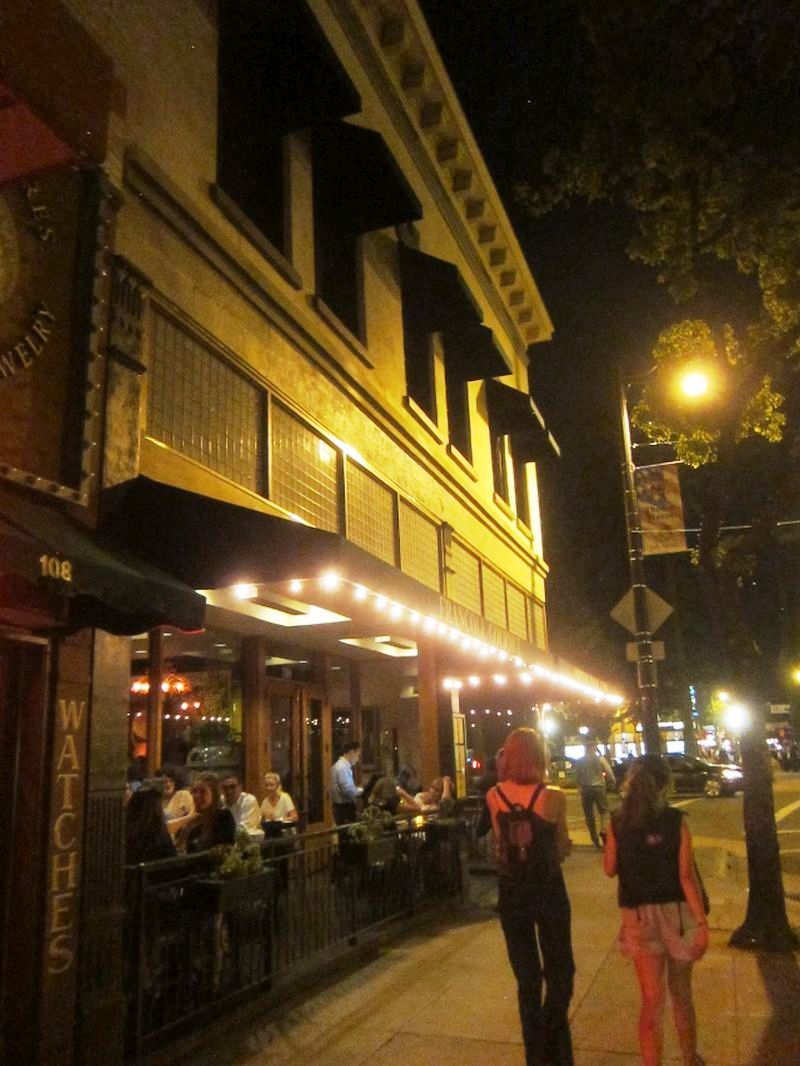 |
|
|
“The plaza at the center of town is a place where everyone comes together in the same area to share stories and to talk about how their lives are going. They’ve been doing it there since 1888. From day one the city has always been a center of storytelling.”
“Every meeting I have with someone in the city, it always ends, with, ‘Have you sat down with so and so? You really should hear their story. Have you heard this story? Do you know about this building?’”
Kevin, who studied creative writing, film, and media arts at Chapman University in Orange, describes how back in the 1880s the city’s fathers and mothers hoped to encourage passersby to settle in town by making it attractive.
They focused on the plaza, which to this day remains the heart of town, with restaurants, outdoor dining, intact historic buildings, all just a hop from the campus. Hot rods and classic cars can be spotted most nights as part of the street scene.
“The women in town raised money to build the first fountain by holding poetry reading, salons, and art shows,” Kevin says. They also wrote and performed a five-act play as part of the effort to build a fountain. 1888 has found the play – and plans to perform it again, perhaps annually.
Those early efforts to create a beautiful town, the focus on arts and storytelling, truly resonate with Kevin, and the other folks behind 1888.
About the women and the play and the fountain, Kevin says, “I got chills when I heard that story.”
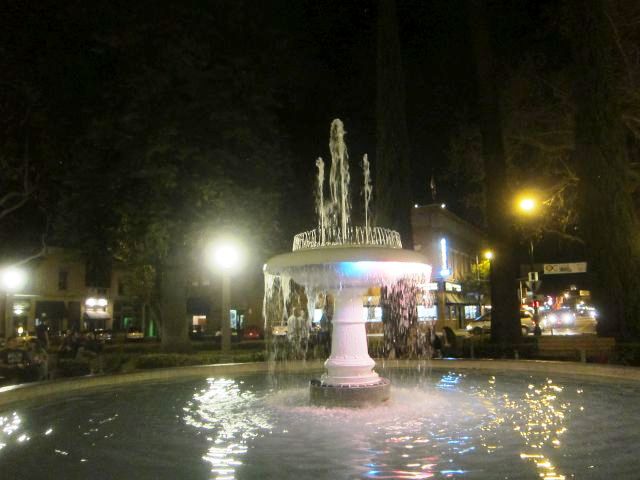 |
|
|
- ‹ previous
- 378 of 677
- next ›



